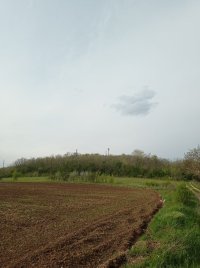UG Krishnamurti
Member
- Joined
- Sep 28, 2020
- Messages
- 555
Don't know what you mean sorry.How are you OP?
Thanks for your advice.Mold remediation experts in my area use Didecyl dimethyl ammonium chloride. It is or was the active ingredient in Lysol disinfectant, a USA brand. It has special properties and advantages over common bleach (Sodium Hypochlorite).
Didecyl dimethyl ammonium chloride has the ability to penetrate porous material to attack mold from it's "roots". Bleach cannot do this, bleach simply sits on the surface, kills the surface mold, but the remaining "roots" stay alive within the pores and helps the mold re-establish itself within 1 year.
Based on my research on mold - you don't want to "attack it" with chemicals since they release their most toxic spores in those moments.
And in almost all the circumstances the mold comes back. So it's safer just to use plain natural soap and just wash it away... or even just scrape the walls off and/or replacing the water pipes, shower heads etc ...
But most probably I would not want to buy a home with visible mold in it. :)

